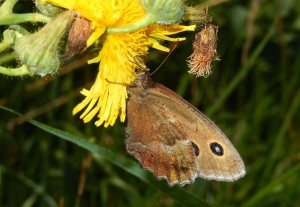
There were Dryad butterflies all over beside the paths on the fen peat of the Tourbières, the old peat workings (the French word Tourbe is cognate with our ‘turf’, a block of peat for the fire).
Turtle Doves cooed peacefully as we arrived, and continued the whole time.
Vendoire is one of the best wet meadow areas in all of Aquitaine, with its shallow fen pools and alkaline peat making it a wonderful place for dragonflies. Today, there were Keeled Skimmers all over, making local dashes low over the water; Blacktailed Skimmers here and there, dashing about widely; a pair of Emperors; Scarlet Darters fiercely territorial; White-legged damselflies; Common Bluetail damselflies; Banded Demoiselles; some Small Pincertails on the chalky entrance path.
Marsh Frogs, Rana ridibunda, lived up to their Latin name (‘laughing frog’) with hilarious, loud laughing song (“what’s that bird?”) during our picnic. Around the peat-ponds are woods and Carr of Ash, Alder, Willow, Sallow, Alder Buckthorn, and wet meadow with long grass rich in flowers.
A single Hobby came overhead, its slender Swift-like wings scything, presumably hawking for dragonflies. A Rose Chafer whirred heavily into the air from the scented Meadowsweet and Purple Loosestrife.
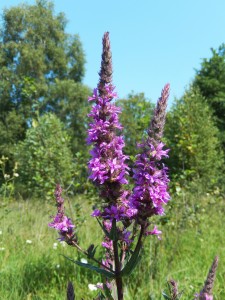
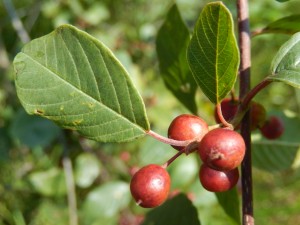
Among the butterflies, Large Skipper, Dryad, Gatekeeper, Mallow Skipper, Meadow Brown, Speckled Wood, Common Blue, Holly Blue. The attractive and common micro-moth Pyrausta purpuralis too.
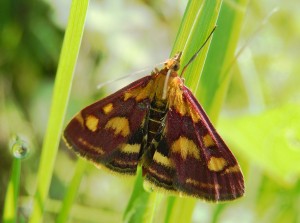
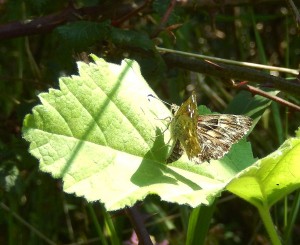
Plateau d’Argentine
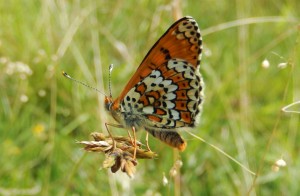
This wonderful reserve, if such it is – it’s still used to launch aircraft, not military any more but hang-gliders – is a flat bare plateau of hard limestone, topped with dry calcareous grassland and scrubby trees, rich in flowers like Viper’s Bugloss, Horseshoe Vetch, Knapweed, Autumn Squill, Eyebright and Devilsbit Scabious, as well as Orchids in springtime, and alive with butterflies. The temperature reached 33 degrees on this sunny afternoon, the Common Blue and Glanville Fritillary butterflies seemingly unaffected by the heat.
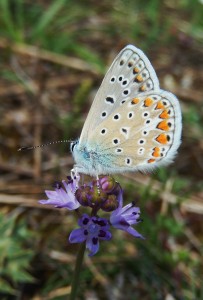
Back at base, a hairy black-and-red striped beetle, Trichodes alvearius visited the Fennel, remaining wary of approach. The very large, black-and-yellow-legged Sand Wasp did the same; it’s tricky to observe as its eyesight is so good.
